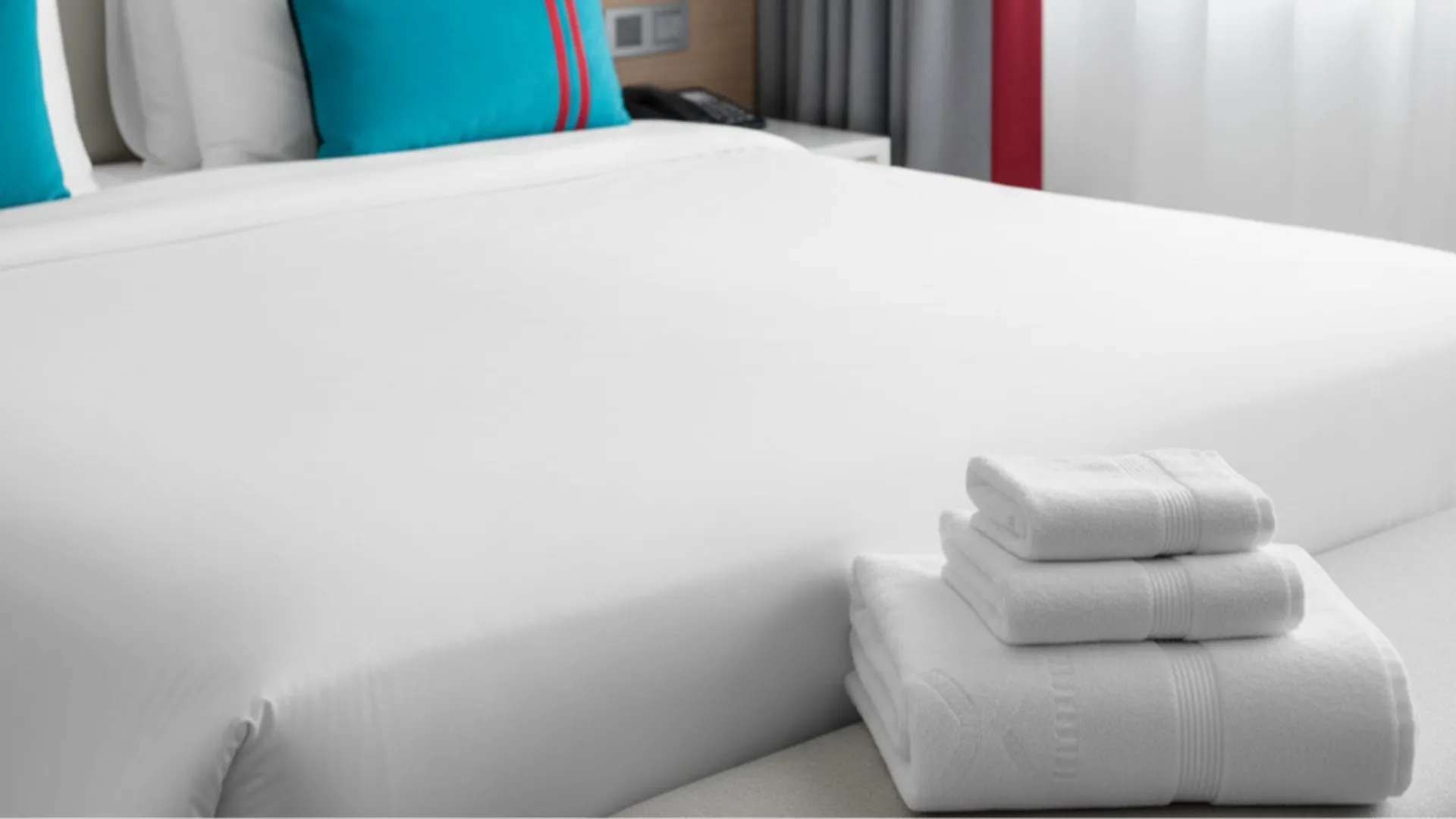Textile quality in hospitality directly influences guest satisfaction, hotel performance, and brand perception. This article analyzes how comfort, durability, and sustainable care practices enhance guest experience, offering practical insights into linen and towel cleaning, professional laundry partnerships, bulk washing systems, and fabric protection methods. It also guides readers on evaluating professional hotel laundry solutions, creating cost-efficient maintenance plans, and selecting sustainable suppliers. For technical details, refer to hotel hygiene standards and industrial hotel laundry processes. Improvements in professional hotel textile washing directly support guest loyalty and operational excellence.
The Link Between Hotel Textile Hygiene Standards and Guest Experience
The connection between hotel textile hygiene and guest experience requires systematic and measurable operations. Supplier selection, washing protocols, and quality assurance processes directly influence satisfaction and brand reputation. Factors such as linen and towel quality, chemical suitability, temperature control, and post-drying inspection must be regularly monitored. Auditing and performance tracking ensure operational consistency. When selecting a professional hotel laundry provider, institutions should evaluate logistics capacity, equipment standards, and quality assurance systems. Bulk washing efficiency, standardized washing formulas, staff training, and traceability systems are key. Professional hotel laundry practices optimize resource use, extend textile lifespan, and maintain high service quality.
The Role of Professional Laundry Services in Linen and Towel Care
Professional laundry companies play a crucial role in maintaining hotel linen performance and guest perception. These partners combine logistical and technical capabilities to deliver consistent textile hygiene. Proper washing programs, dosing, and fabric care protect texture, maintain color stability, and minimize fiber wear. Hotel managers should assess supplier quality indicators such as process validation, certifications, machine capacity, and compliance with bulk washing systems. Quality control steps—moisture and dimensional checks, packaging standards—sustain reliability. Environmental monitoring of water and energy use, optimized dosing, and recycling initiatives contribute to sustainability while supporting operational efficiency and guest satisfaction.
Quality Control Points in Industrial Hotel Laundry Operations
Quality control in industrial hotel laundry requires structured planning from intake to final packaging. Textile classification, contamination risk assessment, and pre-inspection form the foundation of control. Washing formulas, temperature, water levels, and machine loading must remain consistent. A comprehensive checklist includes process validation, temperature monitoring, moisture testing, and dimensional accuracy checks. Data-driven reporting transforms audit results into supplier performance indicators for continuous improvement. Coordinated work with cleaning services promotes quality alignment across departments and ensures operational reliability. This holistic approach enhances both efficiency and customer trust.
The Importance of Fabric Protection Technologies in Bulk Washing Systems
Fabric protection technologies are essential for both operational efficiency and product durability. These include gentle washing cycles, specialized detergents, color stabilizers, and fiber-strengthening agents. Industrial machines configured for hotel textile care combine hygiene assurance with energy efficiency. Hotel managers should assess the effectiveness of fabric protection methods, implementation protocols, and monitoring systems. Well-documented procedures and staff training improve traceability and maintain consistent results. The adoption of recyclable materials and optimized chemical dosing reduces environmental impact while maintaining textile performance. Standardizing professional hotel laundry operations ensures sustainability and continuous quality improvement.
Balancing Hotel Textile Quality with Cost Efficiency
Balancing textile quality with cost efficiency requires strategic planning. Evaluating supplier capabilities and defining measurable performance criteria are key first steps. Service agreements should clearly outline quality metrics, audit frequency, and corrective action plans. Comparing bulk washing investment with outsourcing options helps analyze total ownership cost. Proper use of fabric protection and optimized washing formulas reduces replacement frequency, lowering expenses over time. Energy and water-saving programs, improved chemical dosing, and recycling initiatives further reduce operational costs. Data-driven decisions based on laundry performance improve inventory and purchasing cycles, achieving long-term financial and operational sustainability.



